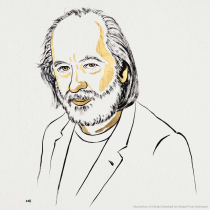
The name “Porabari Chomchom” instantly evokes the image of a syrup-soaked, creamy Bengali delicacy wrapped in a thin layer of mawa. For centuries, this traditional sweet has delighted generations of Bengalis, earning Porabari in Tangail a unique place on the country’s culinary map. A famous proverb even immortalizes the region’s identity—“Chomchom, Tomtom, Sari—these three make Tangail’s glory.”
Porabari’s Chomchom has long enjoyed fame both at home and abroad. From weddings and birthdays to religious and cultural celebrations, the presence of this luscious sweet is almost mandatory. Known as the “king of sweets” for its distinct taste, aroma, and texture, Porabari Chomchom once symbolized the pride of Tangail.
Today, however, the birthplace of this celebrated confection stands on the brink of losing its legacy. While Tangail city’s Panchani Bazaar still sells sweets under the Chomchom name, authentic Porabari Chomchom has nearly vanished from its original home. Due to competition and dwindling interest, only eight to ten households in Porabari continue the craft, with many renowned sweet-making families shifting to other professions.
Following an appeal by the Tangail district administration, the government granted Porabari Chomchom Geographical Indication (GI) status on April 25, 2024, under the Geographical Indication (Registration and Protection) Act of 2013.
A visit to Porabari, located just six kilometers west of Tangail town, reveals a serene landscape. The village, set on the banks of the Dhaleshwari’s Elanjani branch, is small yet charming, with scenic surroundings that captivate visitors. Today, only four sweet shops survive in Porabari Bazaar.
In earlier times, local farmers raised native cattle that produced rich, flavorful milk ideal for sweet making. Now, the shift toward high-yield foreign breeds has compromised the milk’s quality. Despite this, the daily milk market continues to operate, though production has declined from 200–300 maunds a day to around 100. Prices range from Tk 70 to Tk 80 per kilogram, and sweet-makers from nearby areas still buy fresh milk from here.
Locals recall that during the British period, steamers traveling between Dhaka and Kolkata would pass along the Dhaleshwari River. The sound of the vessels would draw villagers from Charabari and Porabari to the banks to watch them. Though the river port was at Charabari, it was Porabari that became the cradle of the famous Chomchom, putting Tangail on the global map.
Historical records suggest that a man named Dashrath Gaur, who migrated from Assam during British rule, first began making Chomchom using the sweet water of the Dhaleshwari and pure cow’s milk. Some accounts say his relatives—Raja Ram Gaur, Narayan Gaur, Koshai Dev, brothers Modon Halui and Kokan Halui, Mohon Lal, Shib Shankar Gaur, and Prokash Chandra Dey Sarkar—carried on the craft. During the Pakistan era, Narayan Gaur’s Chomchom earned fame across the subcontinent, and Maulana Abdul Hamid Khan Bhashani honored him with the title “Bangali Halui Kor.”
By the 1930s, confectioners Ramendra Thakur and Tirthabasi Thakur from Assam began selling sweets in Tangail’s Panchani Bazaar, which soon became known as “Mishti Patti”—the sweet lane.
Porabari itself has a deep-rooted history. The village’s origins date back to the Mughal period when Subedar Islam Khan assigned Shah Zaman to govern the Kagmari region between 1608 and 1613. A devastating fire later destroyed the southern part of Charabari village, giving rise to the name “Porabari,” meaning “burnt homes.”
The 1960s brought major developments in road connectivity, linking Tangail to Dhaka, Mymensingh, and other districts, helping Chomchom’s fame spread far and wide.
Porabari Chomchom once graced the dining tables of many distinguished figures, including Sher-e-Bangla A.K. Fazlul Huq, Huseyn Shaheed Suhrawardy, Maulana Abdul Hamid Khan Bhashani, magician P.C. Sorcar, Nawab Ali Chowdhury, landlord Wazed Ali Khan Panni, Principal Ibrahim Khan, and writer Promoth Nath Choudhury.
Today, notable confectioners such as Khoka Ghosh and Gopal Chandra Das still carry the legacy forward. Among the few surviving establishments are Joy Kali Mishtanno Bhandar, Gopal Mishtanno Bhandar, and Gaur Ghosh Mishtanno Bhandar, while Tangail’s Panchani Bazaar now hosts around fifty sweet shops.
Porabari Chomchom continues to be exported to countries across Asia, including India, Pakistan, Thailand, and China, and to regions in Europe, the Middle East, and North America, such as the United States, the United Kingdom, Canada, Saudi Arabia, Dubai, and Singapore.
Elderly sweet-makers recall the trade’s humble beginnings. Decades ago, a pot of milk sold for two to four paisas, sugar for three to five annas per seer, and Chomchom for six to eight annas. By the 1960s, the sweet sold for Tk 2 to Tk 3 per seer. Today, Porabari has only four sweet shops, while nearby Charabari has five.
According to local confectioner Pradip Chandra Gaur of Shankar Mishtanno Bhandar, his family has been in the Chomchom business for over a century. “My grandfather Chandra Gaur and Gosai Chandra Gaur made the original Tangail Porabari Chomchom,” he said. “We still try to preserve that taste.”
Another veteran sweet-maker, Srimantu Chandra Gaur, explained the secret behind the authentic recipe: the sweet water of the Dhaleshwari, thick cow’s milk, red sugar, rare tamarind wood, and precise heat control. “After independence, I sold two to three maunds of Chomchom daily. Now selling even 20–22 kilograms a day is a struggle,” he lamented. “The hard work no longer matches the earnings.”
Producing genuine Tangail Porabari Chomchom now costs about Tk 400 per kilogram, though slightly lower-quality versions are sold at Tk 250.
A customer from Dhaka, Manik Mia, said, “Tangail’s sweets are far tastier than those from other regions. I visit several times a year to buy them.”
Swapan Ghosh, president of the Tangail Hotel, Restaurant, and Sweet Shop Owners’ Association and proprietor of Joy Kali Mishtanno Bhandar, said his family business has maintained taste and quality for 85 years. “Demand for Tangail’s Chomchom is growing even abroad,” he noted.
Freedom fighter and district BNP founder president Hamidul Haque Mohon remarked that the Dhaleshwari River once made Charabari and Porabari bustling centers of trade. “Merchants from home and abroad who came to buy jute would return with Porabari Chomchom. Though the old taste has faded, a few like Swapan Ghosh and Gopal Chandra Ghosh are still preserving its legacy.”
Despite modern challenges, Tangail’s confectioners remain hopeful that with renewed effort and recognition, the golden legacy of Porabari Chomchom will continue to sweeten Bengali hearts for generations to come.





